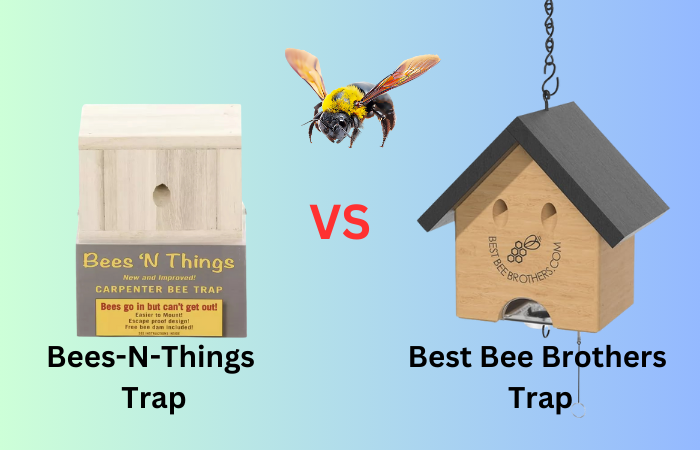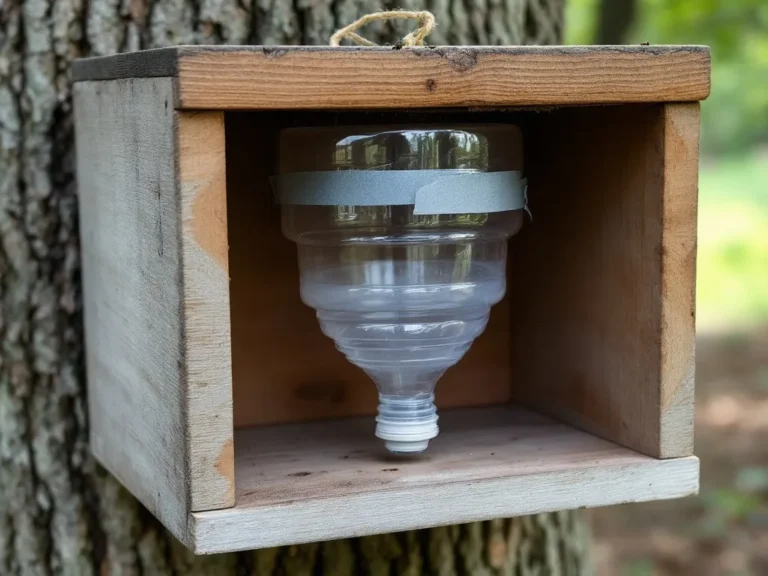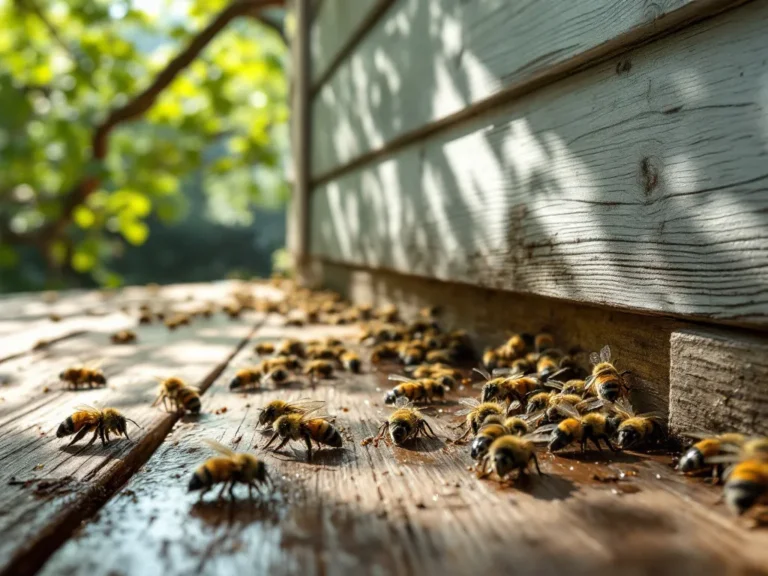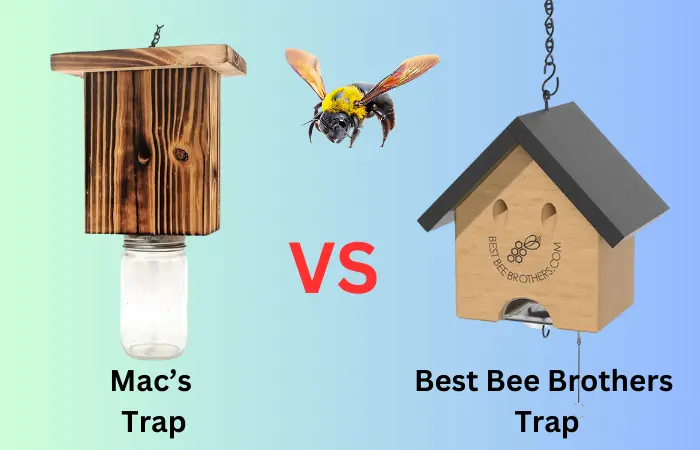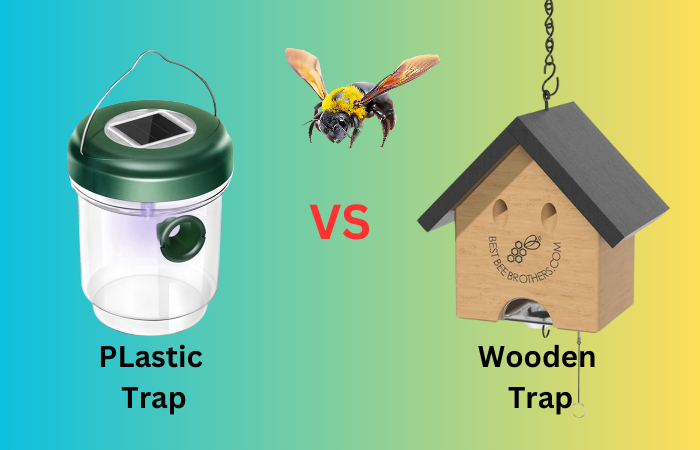With the increasing need for natural, chemical-free solutions to protect wooden structures, carpenter bee traps have gained popularity as an eco-friendly way to tackle infestations. Bees-n-Things and Best Bee Brothers have emerged as leading brands, each offering unique approaches to capturing carpenter bees effectively. Homeowners and property managers who face carpenter bee damage can benefit from understanding the strengths and drawbacks of each trap, enabling them to make an informed decision based on their specific needs, budget, and property requirements.
This comparison dives deeply into all key aspects that affect performance, durability, ease of use, and user satisfaction for both products. We’ll examine design innovations, trapping efficiency, material quality, user feedback, cost, and warranty.
Key Aspects of Comparison
1. Design and Build Quality
| Feature | Bees-n-Things Trap | Best Bee Brothers Trap |
|---|---|---|
| Material | High-grade, untreated wood | Cedar wood for durability and resistance |
| Entry Points | Multi-sided entrances for optimized capture | 45-degree angled entrances to mimic bee nests |
| Size and Dimensions | Compact, with standard dimensions for ease | Larger design for high-traffic areas |
| Durability | Moderate, effective against basic wear | High, designed to resist weather elements |
The Bees-n-Things trap uses high-grade, untreated wood to replicate the natural nesting preference of carpenter bees, offering multi-sided entrances that increase the chances of trapping. However, the untreated wood may degrade faster than treated alternatives if exposed to intense weather.
On the other hand, the Best Bee Brothers Trap is crafted from cedar wood, known for its weather-resistant properties and natural insect-repellent qualities, providing additional durability. Its design incorporates a 45-degree angled entrance, which closely mimics the bees’ natural entry patterns into wood, potentially enhancing trapping success. However, the larger size may limit its placement options in tighter spaces.
2. Trapping Efficiency
| Feature | Bees-n-Things Trap | Best Bee Brothers Trap |
|---|---|---|
| Mechanism | Multi-chamber system | Funnel-style design with a catch chamber |
| Capture Rate | Moderate to high | High, optimized for bee attraction |
| Trap Design Purpose | General-purpose trapping | Mimics bee nesting behavior specifically |
Both traps have been effective in attracting and capturing carpenter bees, but the methods they use differ. The Bees-n-Things trap utilizes a multi-chamber system, allowing bees to enter from multiple sides and reducing the chance of escape. While efficient, its design is more general-purpose, which might limit its capture rate compared to more specialized models.
The Best Bee Brothers Trap focuses on replicating the natural angles and structures of bee nests, with a funnel-style design that efficiently channels bees into a catch chamber, preventing them from escaping. This approach has received favorable feedback for its efficiency, as many users report higher capture rates and faster trapping results.
3. Installation and Ease of Use
| Feature | Bees-n-Things Trap | Best Bee Brothers Trap |
|---|---|---|
| Ease of Installation | Simple, requires basic setup | Pre-assembled, ready for immediate use |
| Placement Flexibility | Moderate, compact for smaller spaces | Larger, suited for open outdoor areas |
| Maintenance | Low, periodic emptying required | Minimal, with easy-access catch chamber |
For homeowners who prioritize convenience, both products are straightforward to set up. The Bees-n-Things trap may require minimal assembly or placement adjustment depending on the space. Its compact design allows it to fit into smaller areas, which can be beneficial for spaces with limited room. Maintenance involves periodically emptying the trap to prevent odor buildup, though this is a quick and easy process.
The Best Bee Brothers Trap, however, arrives fully assembled and is larger, making it better suited for outdoor or expansive areas where carpenter bees are likely to nest. It includes an accessible catch chamber that allows for easy disposal and minimal maintenance, saving users time and effort.
4. User Feedback and Customer Satisfaction
| Feature | Bees-n-Things Trap | Best Bee Brothers Trap |
|---|---|---|
| Average Customer Rating | 4.3/5 | 4.6/5 |
| Common Praise | Effectiveness in small areas, value | High capture rate, low maintenance |
| Common Criticism | Degrades in extreme weather | Larger size can limit placement options |
User feedback highlights valuable insights into the traps’ real-world effectiveness. The Bees-n-Things Trap has earned positive reviews for its compact design and effective capture rates in smaller areas, with users noting it provides good value for the price. However, some customers mention that the untreated wood construction may degrade over time, especially in humid or extreme weather conditions.
Meanwhile, the Best Bee Brothers Trap enjoys a higher average rating due to its durability, high capture rate, and ease of maintenance. Customers appreciate the cedar wood construction for its longevity and insect resistance, though some users find its larger size restrictive, particularly for installations close to doors or windows.
5. Pricing and Value
| Feature | Bees-n-Things Trap | Best Bee Brothers Trap |
|---|---|---|
| Price Range | $25 – $35 | $30 – $45 |
| Warranty | 1-year limited | 1-year warranty |
| Value for Money | Moderate, suitable for small areas | High, especially for high-traffic zones |
In terms of pricing, the Bees-n-Things Trap is more affordable, which may appeal to users on a budget or those who require several traps for a broader area. Although priced slightly lower, its value aligns with its build quality and effectiveness.
The Best Bee Brothers Trap falls on the higher end of the price range but is justified by its durability, specialized design, and higher capture efficiency. The cedar wood construction and thoughtful design cater to users looking for a long-lasting, reliable solution for high-traffic bee areas, providing excellent value over time.
6. Environmental Impact and Sustainability
| Feature | Bees-n-Things Trap | Best Bee Brothers Trap |
|---|---|---|
| Materials | Untreated wood | Cedar wood, natural insect deterrent |
| Eco-friendliness | Moderate, some degradation expected | High, cedar’s natural durability |
| Sustainability | Disposable, requires replacement | Durable, long-lasting |
From an environmental perspective, the Best Bee Brothers Trap stands out due to its use of cedar, which naturally deters insects and is more sustainable in the long term. Its durable design minimizes the need for frequent replacements, reducing waste.
The Bees-n-Things Trap, though eco-friendly due to its untreated wood, may degrade faster, especially when exposed to elements like rain or heat, potentially requiring more frequent replacements over time.
Final Thoughts
Both the Bees-n-Things Trap and the Best Bee Brothers Trap provide effective, chemical-free solutions for controlling carpenter bee populations. However, each offers unique advantages suited to different types of users and property layouts:
- Bees-n-Things Trap: This option is ideal for users seeking an affordable, compact trap for smaller areas. It’s easy to install and provides a reasonably effective solution for moderate infestations. However, users in areas with harsh weather conditions may need to replace it more frequently due to its untreated wood construction.
- Best Bee Brothers Trap: With its durable cedar wood build, high capture efficiency, and user-friendly maintenance, this trap is a strong choice for those facing higher carpenter bee traffic or those who want a long-lasting solution. Its slightly higher price is offset by its durability and performance, making it suitable for larger outdoor areas.
Recommendation: For smaller spaces and budget-conscious users, the Bees-n-Things Trap offers good performance at an accessible price. However, for those seeking a robust, weather-resistant solution with minimal maintenance, the Best Bee Brothers Trap is an excellent investment.
Each trap serves its purpose effectively; choosing between them depends on specific needs, property layout, and budget.

